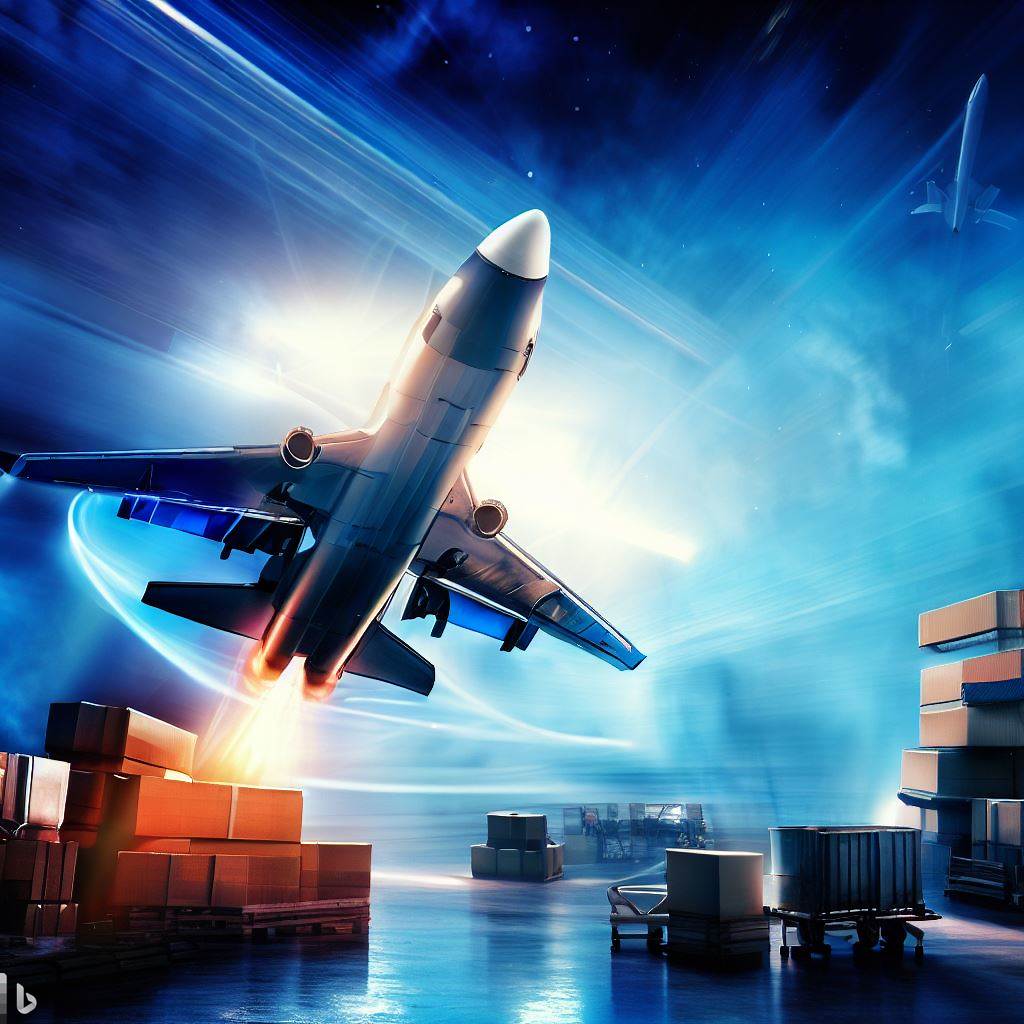ERP for Aerospace Logistics: Optimizing Supply Chain & Efficiency
The aerospace logistics industry stands at the forefront of cutting-edge technology, catering to the intricate demands of transporting and managing essential components for aircraft production, maintenance, and repair. As this dynamic sector expands and evolves, so do the challenges and bottlenecks that logistics companies face. From stringent regulatory compliance to the delicate handling of high-value assets, the complexities of the aerospace supply chain demand innovative solutions.
Here, we explore the pain points and bottlenecks that have long plagued aerospace logistics businesses and the pivotal role that Enterprise Resource Planning (ERP) solutions play in addressing these issues. ERP systems have emerged as a transformative force, revolutionizing the way logistics operations are managed and streamlined across diverse functions. By seamlessly integrating data, automating processes, and fostering real-time collaboration, ERP solutions offer a comprehensive approach to overcoming challenges while maximizing efficiency and transparency in the aerospace logistics landscape.
Join us as we delve into the specific pain points faced by the aerospace logistics industry and examine how ERP solutions provide tailored answers to these challenges, propelling the industry towards a more agile, compliant, and sustainable future. From regulatory compliance and inventory management to supply chain visibility and beyond, discover how ERP empowers aerospace logistics businesses to soar to new heights in a fiercely competitive and ever-changing global market.
Benefits of ERP Implementation for Aerospace Logistics
Regulatory Compliance:
An ERP system can centralize and automate regulatory compliance processes. It can track and manage certifications, permits, and safety requirements, ensuring timely renewals and adherence to regulations. This streamlines compliance efforts and reduces the risk of non-compliance-related disruptions.
Transportation Constraints:
ERP software can optimize transportation planning and scheduling, considering the specific requirements of moving aerospace components. It can help identify the most suitable transport modes and providers, minimizing delays and ensuring the efficient movement of oversized or delicate items.
Customs and Border Control:
ERP systems with integrated customs management capabilities can simplify cross-border operations. Automated documentation and compliance checks can expedite customs clearance, reducing border-related bottlenecks.
High Value and Criticality:
With advanced inventory management modules, ERP solutions can monitor and control high-value aerospace components efficiently. Real-time tracking and security features can enhance asset protection and reduce the risk of loss or damage.
Inventory Management:
ERP systems can optimize inventory levels through demand forecasting and inventory replenishment algorithms. This helps strike a balance between having enough spare parts for maintenance needs while minimizing excess inventory costs.
Supply Chain Visibility:
ERP provides end-to-end visibility by integrating data from various stakeholders across the supply chain. This enhanced visibility helps in better coordination, faster issue resolution, and improved decision-making.
Lead Time and Just-in-Time (JIT) Delivery:
ERP software can streamline order processing and automate JIT delivery scheduling. With accurate lead time calculations, logistics providers can ensure on-time delivery of critical spare parts for aircraft maintenance.
Aircraft Scheduling and Maintenance Coordination:
ERP systems with maintenance planning modules can synchronize aircraft maintenance schedules with spare parts delivery. This ensures that required parts are available when needed, minimizing aircraft downtime.
Geopolitical Considerations:
ERP systems can adapt to changing geopolitical factors by enabling flexible supply chain configurations. Companies can efficiently reroute shipments or adjust inventory levels to mitigate the impact of political disruptions.
Environmental Concerns:
ERP solutions can support sustainable practices by optimizing transportation routes and consolidating shipments. This reduces carbon emissions and aligns with the industry’s eco-friendly initiatives.
Technological Advancements:
ERP systems can incorporate emerging technologies, such as IoT sensors and AI-powered analytics, to enhance logistics efficiency while meeting safety and certification requirements.
Labor Shortages and Skill Requirements:
ERP systems simplify complex processes, reducing the need for specialized knowledge and expertise in every operation. This helps bridge skill gaps and improves overall operational efficiency.
By implementing an ERP system tailored to the aerospace logistics industry, companies can mitigate challenges, optimize operations, and ensure seamless coordination among various stakeholders in the supply chain.
